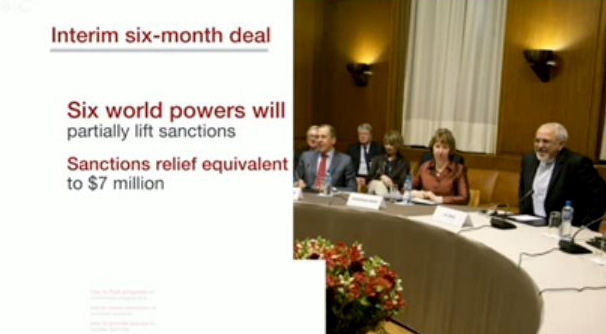 Some of the main negotiators of the Iran nuclear interim deal at the table (from left): Russian Foreign Minister of Sergei Lavrov Russia, the EU´s high representative for foreign affairs and security policy Cathrin Ashton and Iran´s Foreign Minister Mohammad Javad Zarif. (BBC)
Some of the main negotiators of the Iran nuclear interim deal at the table (from left): Russian Foreign Minister of Sergei Lavrov Russia, the EU´s high representative for foreign affairs and security policy Cathrin Ashton and Iran´s Foreign Minister Mohammad Javad Zarif. (BBC)
Comment: The Iranian Elephant on the Middle East Table
The US can´t handle everything in the world at the same time. Its focus shifts to the Pacific, away from Europe and the Middle East.
In Syria, Iran has manoeuvred itself into a position allowing it to extract concessions from its foes. It can´t dominate, but now it sits like a huge elephant on the table, in the middle of the region and just won´t go away. Its opponents have to deal with that, and they obviously don´t know how.

